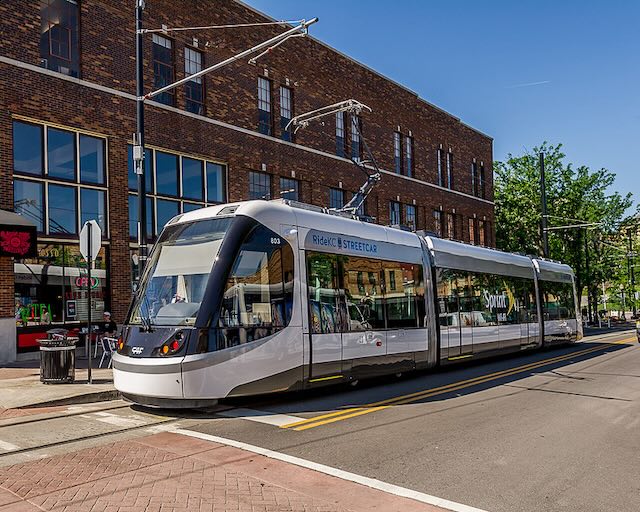Kansas City is one of the few urban areas to see ridership recover from the pandemic. Recent transit data shows that the region’s transit carried 99 percent as many riders in the first half of 2024 as the same months in 2019, albeit mainly because it has reduced fares to zero. However, all is not well with transit in the self-described Paris of the Plains.
The Kansas City streetcar is a great success if you ignore the fact that it has never earned a single penny in fare revenues. Similarly, KC’s bus system’s recovery from the pandemic is less impressive considering it isn’t earning any fares either. Photo by Jazz Guy.
Earlier this week, the Blue Springs city council voted to end support to the Kansas City Area Transportation Authority (KCATA). The suburb of about 58,000 residents had paid the transit agency $73,000 for transit services in 2022-2023, but the agency had increased its requirement to nearly $123,000 for 2024-2025 “without much justification for the increase,” the city said.
The city also noted that KCATA admitted that the bus route it was supporting only had an average of six daily round-trip riders — and the city was even dubious about that. Assuming the agency was correct, that represented a subsidy of more than $20,000 per daily round-trip rider.
Blue Springs is the fourth suburb to withdraw from KCATA in the past few months, the others being Grandview, Gladstone, and Raytown. Together, these suburbs house more than 130,000 people, or about 8 percent of the region’s population.
Blue Springs’ skepticism of KCATA’s ridership numbers results from one of the drawbacks of free transit systems: agencies running such systems can report any ridership figures they want and no one can check to see if they are reliable. At least when transit agencies charge fares, even if the fares are only a small fraction of the operating costs, the year-to-year results can be compared to confirm if reported increases in ridership are matched by similar increases in fares.








